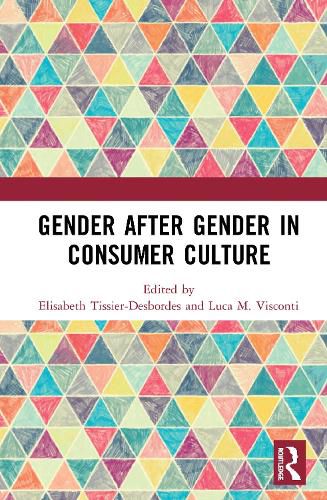Readings Newsletter
Become a Readings Member to make your shopping experience even easier.
Sign in or sign up for free!
You’re not far away from qualifying for FREE standard shipping within Australia
You’ve qualified for FREE standard shipping within Australia
The cart is loading…






Gender After Gender in Consumer Culture provides an updated discussion of how gender cuts across consumer culture, in light of increasing gender fragmentation and integration with other identity positions.
Sex, the biological distinction male/female, and gender, which refers to a person’s sense of being male, female, or any other combinations of these, inform issues as varied as personal identity, social interactions, and market behaviours. First, contributions account for the increasing fluidity and/or fragmentation of gender positions, which reshape the interplay between consumers and marketers. Second, they provide a timely illustration of how consumption and markets concur in contrasting gender inequalities, taken both individually and jointly (e.g., at the intersection of ethnicity or positions of market marginalisation). Third, chapters question the role of gender in granting personal and societal well-being, as they reflect on the collective capacity of constantly undoing gender stereotypes. Focusing on gender, this book allows the reader to trace the links among cultural categories (e.g. masculinity, femininity, gender identity), social phenomena, and market (dis)functioning.
The chapters in this book were originally published as a special issue in the journal Consumption Markets & Culture.
$9.00 standard shipping within Australia
FREE standard shipping within Australia for orders over $100.00
Express & International shipping calculated at checkout
Gender After Gender in Consumer Culture provides an updated discussion of how gender cuts across consumer culture, in light of increasing gender fragmentation and integration with other identity positions.
Sex, the biological distinction male/female, and gender, which refers to a person’s sense of being male, female, or any other combinations of these, inform issues as varied as personal identity, social interactions, and market behaviours. First, contributions account for the increasing fluidity and/or fragmentation of gender positions, which reshape the interplay between consumers and marketers. Second, they provide a timely illustration of how consumption and markets concur in contrasting gender inequalities, taken both individually and jointly (e.g., at the intersection of ethnicity or positions of market marginalisation). Third, chapters question the role of gender in granting personal and societal well-being, as they reflect on the collective capacity of constantly undoing gender stereotypes. Focusing on gender, this book allows the reader to trace the links among cultural categories (e.g. masculinity, femininity, gender identity), social phenomena, and market (dis)functioning.
The chapters in this book were originally published as a special issue in the journal Consumption Markets & Culture.